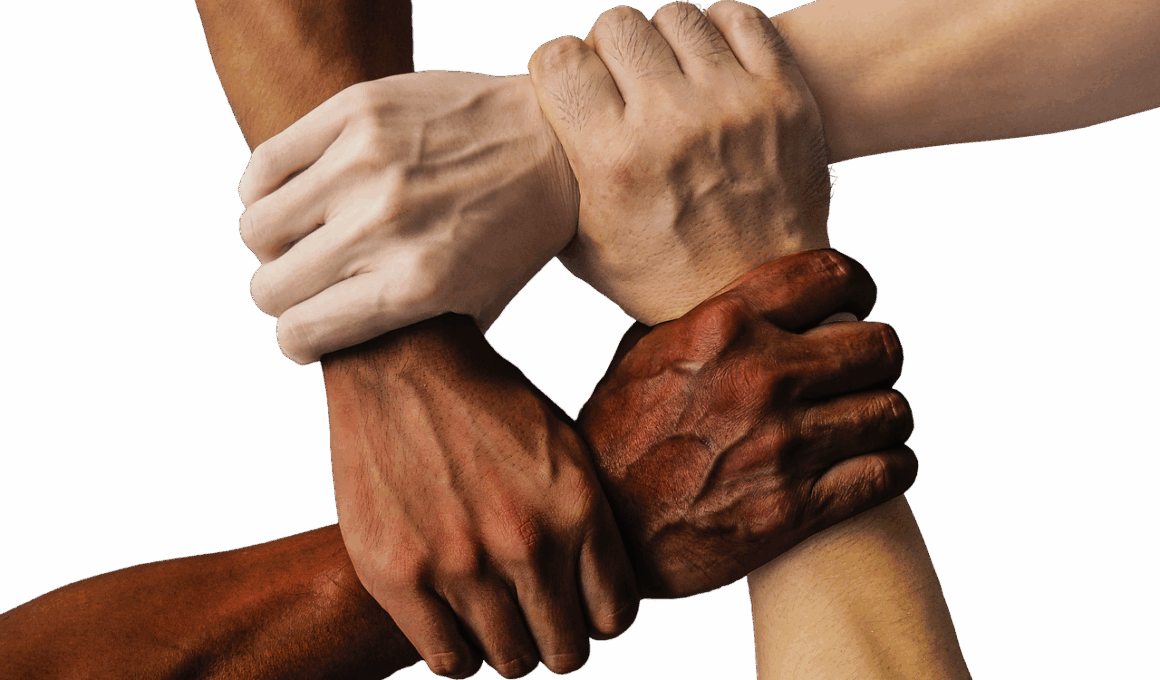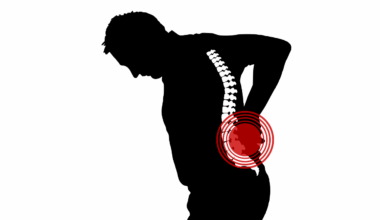The Link Between Peer Support and Sportsmanship Behavior
In the competitive landscape of sports, peer support emerges as a critical component influencing athletes’ behaviors, particularly regarding sportsmanship. Athletes who receive encouragement and emotional backing from their teammates are more likely to exhibit positive sportsmanship behaviors. Strong peer support systems foster a sense of belonging and unity among athletes, which can significantly impact their approach to competition. When individuals feel supported, they are motivated to perform better and adhere to the ethical guidelines of their sport. Additionally, peer interactions influence decision-making in high-pressure situations, where maintaining sportsmanship is paramount. In team settings, such reinforcement also builds resilience, allowing athletes to manage stress and conflicts more effectively. Ultimately, instilling a culture of peer support may lead to improved overall sporting environments. This cultural shift not only enhances individual performances but also promotes respect, fairness, and integrity in sports. Recognizing the importance of peer support in maintaining sportsmanship behaviors is essential for coaches, educators, and sports organizations. They should cultivate systems that encourage supportive relationships and foster an atmosphere of mutual respect among all participants.
Peer support enhances emotional regulation, which equates to better sportsmanship behavior. Athletes often encounter a range of emotions from excitement to frustration and disappointment during competitions. The presence of supportive peers can help mitigate negative feelings, allowing athletes to maintain composure and behave ethically in challenging situations. Emotional regulation is critical in sports; it helps individuals process disappointments without resorting to unsportsmanlike behavior, such as aggression or unsportsmanlike conduct. Athletes can help each other recognize signs of emotional distress and intervene positively to avoid potential outbursts. This creates a proactive approach to conflict management among teammates. Moreover, peers can share coping strategies that have worked for them in stressful situations. When athletes learn from one another’s experiences, they can develop better emotional intelligence, leading to healthier expressions of feelings. An emotionally intelligent athlete will show respect toward competitors, referees, and teammates, which ultimately fosters good sportsmanship. Developing these emotional tools within a peer support network contributes significantly to creating a positive sporting environment. Coaches should maximize opportunities for peer interactions during training to facilitate this essential skill-set development among athletes.
The Role of Communication in Peer Support
Effective communication is foundational to peer support, shaping athletes’ sportsmanship attitudes and behaviors. Open lines of communication enable athletes to express concerns and share achievements, which strengthens their relationships. By discussing experiences, athletes promote mutual understanding and empathy, both of which are crucial in fostering a sportsmanship mindset. In supportive environments, teammates feel valued and understood, leading to increased motivation to maintain ethical conduct during competition. Coaches and athletes should prioritize regular discussions fostering a culture of openness. This communication not only creates trust among team members but also establishes clear expectations regarding sportsmanship behaviors each athlete should strive to achieve. Moreover, peer support extends beyond verbal communication. Non-verbal encouragement, such as a supportive nod or a congratulatory hug, also plays an essential role in reinforcing positive behavior. Such gestures can affirm teammates positively, encouraging them to uphold sportsmanship even in adversity. Teams that communicate effectively about sportsmanship are likely to create a shared understanding of its importance, resulting in collective accountability and responsibility. Ultimately, fostering both verbal and non-verbal communication is vital for athletes’ peer support networks to thrive and for sportsmanship to flourish.
Peer support networks can also be influential in shaping athletes’ ethical decision-making processes during high-stake competitions. When individuals know their teammates have their back, they are often more willing to report unacceptable behaviors, such as cheating or bullying, that contradict sportsmanship principles. Such networks create an atmosphere of accountability where athletes hold each other to shared ethical standards. This collective commitment can lead to a marked reduction in unsportsmanlike behaviors. Furthermore, witnessing peers demonstrate ethical conduct serves as a powerful model for younger or less experienced athletes. Peer support encourages adherence to the core values of the sport by showcasing real-life applications of sportsmanship. Teams with strong peer support systems often experience enhanced cohesion, which can lead to improved performance on and off the field. Feeling accountable to one another can energize athletes to uphold values of integrity, fairness, and respect during competitions. Moreover, as athletes engage with one another, they can challenge unethical behaviors appropriately. Such vigilance promotes a culture where sportsmanship and ethical behavior are celebrated. The cyclical nature of this peer support in shaping ethical standards enhances the overall integrity of the sport while building a stronger community among athletes.
Building Resilient Athletes Through Peer Support
Encouraging peer support among athletes fosters resilience, a critical attribute linked to sportsmanship. Resilience allows athletes to handle setbacks and rejections while maintaining a strong ethical framework for sports participation. When athletes support each other’s mental and emotional well-being, they are better equipped to face challenges. Peers can offer reassurance during tough times, motivating individuals to rebound and strive to adhere to sportsmanship principles. Teams that focus on resilience-building through peer engagement can cultivate a strong sense of camaraderie. This bond strengthens commitment and fosters a collaborative spirit on the field. Supportive peers can help each other develop a healthy view of competition and life’s ups and downs, encouraging positive coping mechanisms during intense sporting moments. Moreover, teams that prioritize mental resilience through peer support often experience higher levels of satisfaction and fulfillment in their sporting pursuits. Consequently, their performance may improve, leading to greater achievements. Coaches can implement activities designed to enhance peer resilience, such as team-building exercises and open forums that encourage sharing experiences or struggles. Investing in resilience training ensures that athletes not only perform well but also conduct themselves honorably, embodying the essence of sportsmanship.
Peer support plays a vital role in ensuring athletes navigate the complexities of competition with grace and ethical standards. In many sports, competitive intensity often heightens the risk of aggression or unsportsmanlike conduct. Peer support serves as an effective buffer against such pressures. When athletes have a trusted support system, they can express their frustrations or insecurities without fear of judgment. This safe environment allows for constructive conversations about handling competition pressures and maintaining sportsmanship. Furthermore, athletes can discuss actionable strategies for dealing with rivalries and conflicts, drawing on their peers’ insights and experiences. Building these trusting relationships reduces the likelihood of athletes resorting to negative behaviors when faced with pressure. Teams that prioritize peer support and collective well-being often witness an uptick in overall morale, resulting in higher performance levels. Increased morale leads to enhanced focus on fair play and respect for opponents, reinforcing the values of sportsmanship. Consequently, these relationships foster a culture that values ethical behavior in the competitive sphere, ultimately preparing athletes to represent their teams and themselves positively during competitions. In conclusion, recognizing the importance of peer support networks can lead to healthier and more ethical sporting experiences for everyone involved.
Conclusion: Cultivating Peer Support in Sports
Encouraging peer support in sports settings is essential for nurturing a culture of integrity and good sportsmanship. Athletes who engage and connect with their peers positively can significantly improve their behavioral standards. This importance cannot be understated, as poor conduct can tarnish the reputation and spirit of sports. By implementing structured approaches to foster peer support, coaches can reshape their teams’ dynamics to emphasize respect, accountability, and mutual encouragement. Efforts might include training sessions where athletes are encouraged to share personal experiences and tips for maintaining good sportsmanship. Additionally, celebrating acts of integrity within the team can inspire others to follow suit. Recognizing athletes who make ethical decisions strengthens the commitment to such values and creates an environment where sportsmanship flourishes. Therefore, the emphasis on peer support is not merely an add-on to training but rather a foundational aspect of developing balanced, respectful, and resilient athletes. Ultimately, when organizations prioritize peer relationships, the benefits extend beyond individual athletes to uplift entire teams, creating a legacy of sportsmanship that reverberates through generations. Investing in peer support strategies fosters a brighter future for athletes and sports at large.
This is another paragraph with exactly 190 words…


